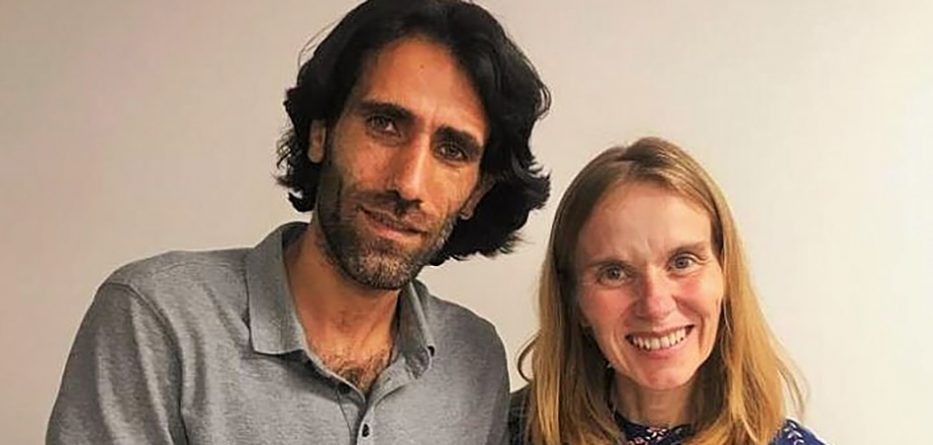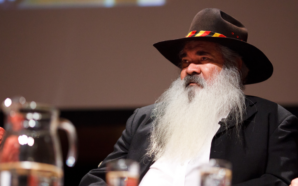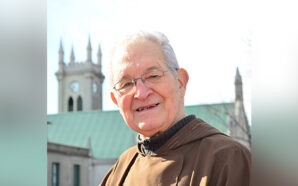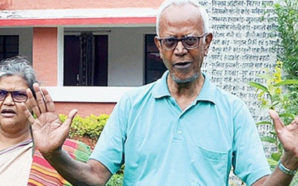I recently visited Port Moresby as part of a delegation of Catholic leaders. We travelled there to witness the situation of the refugees and asylum seekers on Manus Island, to communicate and demonstrate solidarity with them, and to promise to act with them as fellow human beings deserving dignity and respect.
I have worked with refugees and migrants for more than 20 years in different countries. I have been part of many serious and confronting human rights struggles. Jesuit Refugee Service (JRS) Australia, the organisation I lead, works with many families and men transferred from Manus Island and Nauru for medical treatment. I am familiar with some of their challenges, including their ongoing struggles with destitution and homelessness in the Australian community.
Nonetheless, I was not expecting what I saw and what I heard in PNG, and it deeply touched me. The ongoing resilience of these men against the odds also inspired me.
I saw young men with their lives ahead of them — except that many of those lives have been taken away by unfair and unnecessary policies that still continue to haunt them after seven long years of suffering, pain and slow torture.
I also saw amazingly inspiring and deeply political men who see each other as brothers and who often care more for each other than themselves. For instance, most of the men told us how the priority is to focus on the harrowing situation that their brothers in Bomana Immigration Centre are facing.
A man showed me photos of his teenage daughter and son with a mixture of pride and sadness. He has not seen them for seven years. Others mentioned that they have not talked with their families for almost six months because they do not want to make them suffer. Their families no longer believe they have been detained without doing anything wrong. This is how deeply offshore processing has impacted the men. Other men amazed me with the skills they have learnt in those long days in detention on Manus, including proficient use of languages
I found so many of these young men profoundly inspiring. They may not all be Christians, but they were examples to us Christian visitors of what it means to live the Gospels. They have turned the other cheek and have decided to look after each other in the face of harrowing adversity. They remind us of what it means to love our neighbour.
Around 250 men remain in Port Moresby. Many have now been resettled in other countries or been medically evacuated to Australia. However the future for some of these men is deeply uncertain. Some of them will be resettled to third countries but others are still left in limbo, despite the fact that they were only seeking safety and sanctuary.
Some men suffer from serious physical and mental health conditions. Many mentioned how the painkillers and sedatives that they have been taking for years don’t seem to have any effect on them anymore. Others wonder whether they will be alive in coming months.
Others are in Bomana Immigration Centre, on the outskirts of Port Moresby. They have been unfairly detained for more than three months, unable to contact family members. Many have lost 12-15kg during this time because they receive meagre portions of food. They have no access to daylight, no pillows, no visitors, no legal advice and constant pressure to sign return papers to countries where they may be at risk of harm or worse. As some of their brothers said, the conditions in Bomana amount to physical and psychological torture.
Other men are in the hospital’s psychiatry ward after years of intense suffering and trauma, and others with families in PNG are having to make the harrowing choice between resettling alone without their families or living together a life of destitution and homelessness and in PNG.
Outside Bomana Immigration Centre, I couldn’t help thinking about what would the men inside the prison be thinking at that time of the day, inside their cells, and whether they would ever know that there were people outside, and in many parts of Australia and the world, who care about them and stand with them.
On the plane back to my comfortable life in Australia, I could not help but feel deep feelings of anger and sadness. I cannot unsee what I have seen or unhear what I have heard. I feel an intense desire to do something about this gross and purposeless abuse of human dignity. The status for some of these men differs but it is clear to me that they all have suffered serious human rights breaches and each of them deserve access to safe and secure pathways. One of the men said that each of their stories is a tragedy, and each is a different tragedy.
Nonetheless, I am struck by how grateful these men are for those in Australia who have been walking with them for years and those who continue walking with them in PNG, such as senior priest Fr Giorgio Licini and his colleagues. The dignity and courage of these wonderful men and families, their leadership against the odds, and their solidarity and brotherhood also stay with me and inspires me.
The many men that I had the honour to meet are fellow human beings who want nothing more than a chance to rebuild their lives in peace and safety. If we can begin to recognise that, perhaps we can all open our hearts a bit more. The ends certainly do not justify the means.
Carolina Gottardo is Director of Jesuit Refugee Service Australia and co-convenor of the Catholic Alliance for People Seeking Asylum.
Republished with permission from Eureka Street, a publication of Jesuit Communications Australia.








